Mario Chahoud
On-Demand Model and Client Deployment in Federated Learning with Deep Reinforcement Learning
May 12, 2024Abstract:In Federated Learning (FL), the limited accessibility of data from diverse locations and user types poses a significant challenge due to restricted user participation. Expanding client access and diversifying data enhance models by incorporating diverse perspectives, thereby enhancing adaptability. However, challenges arise in dynamic and mobile environments where certain devices may become inaccessible as FL clients, impacting data availability and client selection methods. To address this, we propose an On-Demand solution, deploying new clients using Docker Containers on-the-fly. Our On-Demand solution, employing Deep Reinforcement Learning (DRL), targets client availability and selection, while considering data shifts, and container deployment complexities. It employs an autonomous end-to-end solution for handling model deployment and client selection. The DRL strategy uses a Markov Decision Process (MDP) framework, with a Master Learner and a Joiner Learner. The designed cost functions represent the complexity of the dynamic client deployment and selection. Simulated tests show that our architecture can easily adjust to changes in the environment and respond to On-Demand requests. This underscores its ability to improve client availability, capability, accuracy, and learning efficiency, surpassing heuristic and tabular reinforcement learning solutions.
Trust Driven On-Demand Scheme for Client Deployment in Federated Learning
May 01, 2024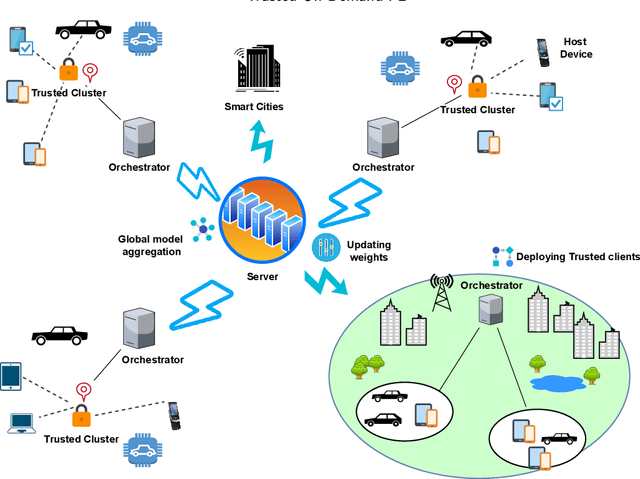
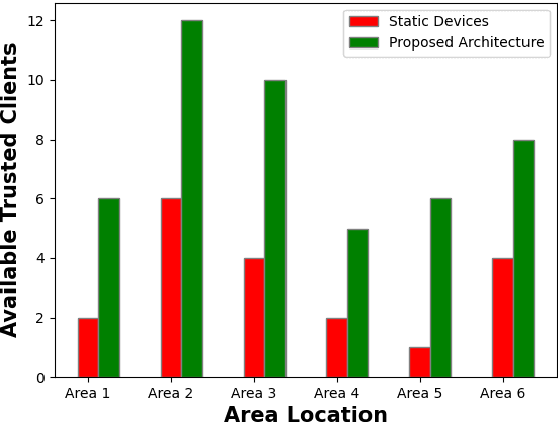
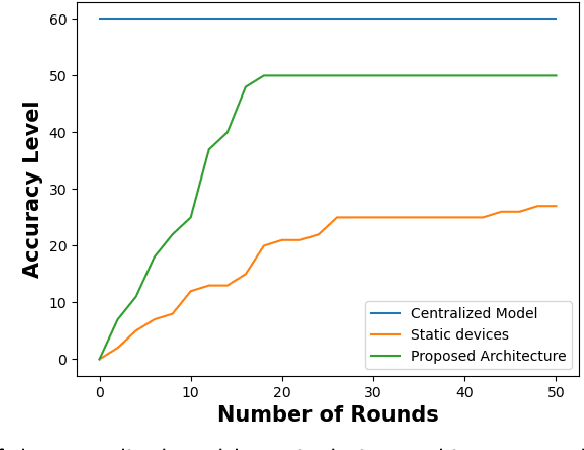
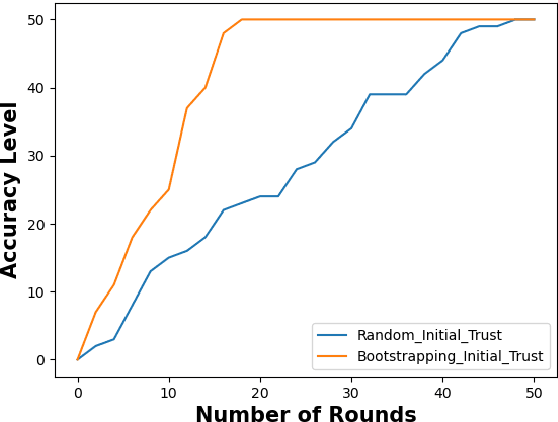
Abstract:Containerization technology plays a crucial role in Federated Learning (FL) setups, expanding the pool of potential clients and ensuring the availability of specific subsets for each learning iteration. However, doubts arise about the trustworthiness of devices deployed as clients in FL scenarios, especially when container deployment processes are involved. Addressing these challenges is important, particularly in managing potentially malicious clients capable of disrupting the learning process or compromising the entire model. In our research, we are motivated to integrate a trust element into the client selection and model deployment processes within our system architecture. This is a feature lacking in the initial client selection and deployment mechanism of the On-Demand architecture. We introduce a trust mechanism, named "Trusted-On-Demand-FL", which establishes a relationship of trust between the server and the pool of eligible clients. Utilizing Docker in our deployment strategy enables us to monitor and validate participant actions effectively, ensuring strict adherence to agreed-upon protocols while strengthening defenses against unauthorized data access or tampering. Our simulations rely on a continuous user behavior dataset, deploying an optimization model powered by a genetic algorithm to efficiently select clients for participation. By assigning trust values to individual clients and dynamically adjusting these values, combined with penalizing malicious clients through decreased trust scores, our proposed framework identifies and isolates harmful clients. This approach not only reduces disruptions to regular rounds but also minimizes instances of round dismissal, Consequently enhancing both system stability and security.
The Metaverse: Survey, Trends, Novel Pipeline Ecosystem & Future Directions
Apr 18, 2023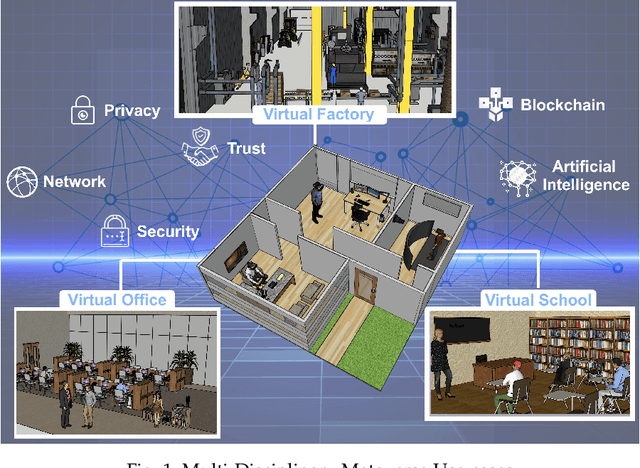

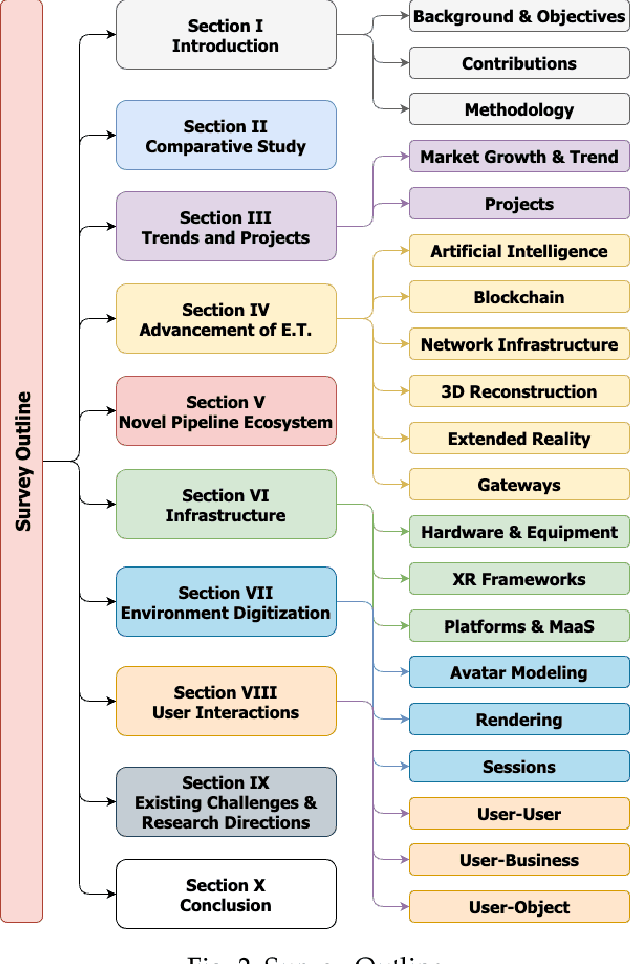

Abstract:The Metaverse offers a second world beyond reality, where boundaries are non-existent, and possibilities are endless through engagement and immersive experiences using the virtual reality (VR) technology. Many disciplines can benefit from the advancement of the Metaverse when accurately developed, including the fields of technology, gaming, education, art, and culture. Nevertheless, developing the Metaverse environment to its full potential is an ambiguous task that needs proper guidance and directions. Existing surveys on the Metaverse focus only on a specific aspect and discipline of the Metaverse and lack a holistic view of the entire process. To this end, a more holistic, multi-disciplinary, in-depth, and academic and industry-oriented review is required to provide a thorough study of the Metaverse development pipeline. To address these issues, we present in this survey a novel multi-layered pipeline ecosystem composed of (1) the Metaverse computing, networking, communications and hardware infrastructure, (2) environment digitization, and (3) user interactions. For every layer, we discuss the components that detail the steps of its development. Also, for each of these components, we examine the impact of a set of enabling technologies and empowering domains (e.g., Artificial Intelligence, Security & Privacy, Blockchain, Business, Ethics, and Social) on its advancement. In addition, we explain the importance of these technologies to support decentralization, interoperability, user experiences, interactions, and monetization. Our presented study highlights the existing challenges for each component, followed by research directions and potential solutions. To the best of our knowledge, this survey is the most comprehensive and allows users, scholars, and entrepreneurs to get an in-depth understanding of the Metaverse ecosystem to find their opportunities and potentials for contribution.
ON-DEMAND-FL: A Dynamic and Efficient Multi-Criteria Federated Learning Client Deployment Scheme
Nov 05, 2022



Abstract:In this paper, we increase the availability and integration of devices in the learning process to enhance the convergence of federated learning (FL) models. To address the issue of having all the data in one location, federated learning, which maintains the ability to learn over decentralized data sets, combines privacy and technology. Until the model converges, the server combines the updated weights obtained from each dataset over a number of rounds. The majority of the literature suggested client selection techniques to accelerate convergence and boost accuracy. However, none of the existing proposals have focused on the flexibility to deploy and select clients as needed, wherever and whenever that may be. Due to the extremely dynamic surroundings, some devices are actually not available to serve as clients in FL, which affects the availability of data for learning and the applicability of the existing solution for client selection. In this paper, we address the aforementioned limitations by introducing an On-Demand-FL, a client deployment approach for FL, offering more volume and heterogeneity of data in the learning process. We make use of the containerization technology such as Docker to build efficient environments using IoT and mobile devices serving as volunteers. Furthermore, Kubernetes is used for orchestration. The Genetic algorithm (GA) is used to solve the multi-objective optimization problem due to its evolutionary strategy. The performed experiments using the Mobile Data Challenge (MDC) dataset and the Localfed framework illustrate the relevance of the proposed approach and the efficiency of the on-the-fly deployment of clients whenever and wherever needed with less discarded rounds and more available data.
 Add to Chrome
Add to Chrome Add to Firefox
Add to Firefox Add to Edge
Add to Edge